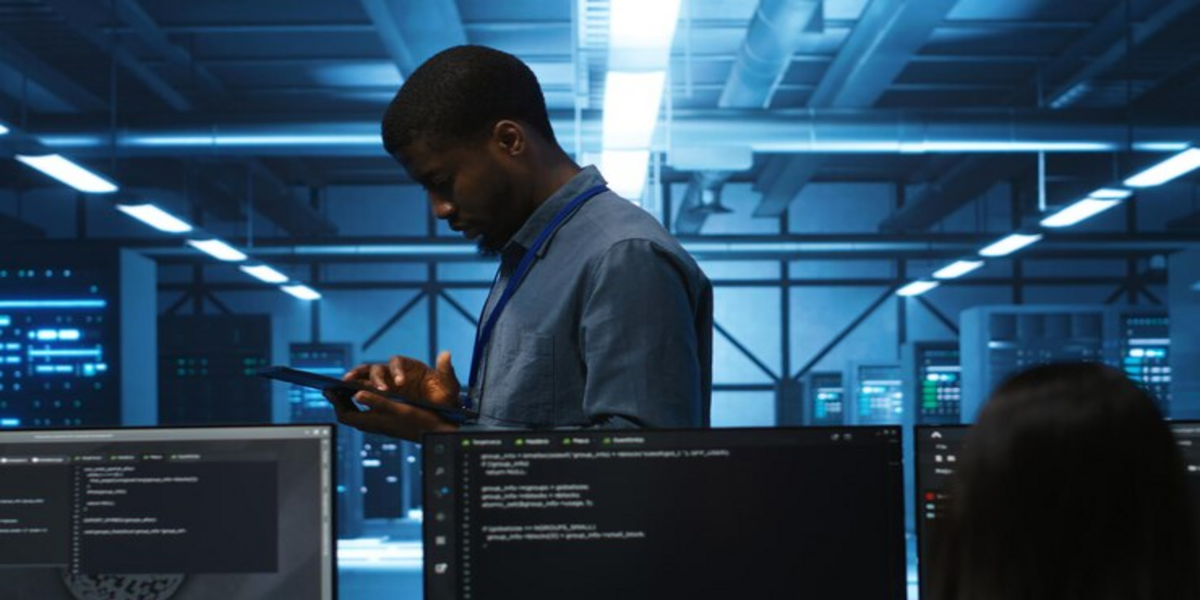Cybersecurity threats present a big problem to our technological work. They can target networks and devices to wreak havoc across the digital landscape. Now that businesses are gradually transitioning to the cloud and rapidly adapting to technology, they’ve become one of the biggest targets of cyberterrorists.
It should be no surprise that the weakest link in your network security infrastructure is the end-user. While it is easy for a malware attack to target the organization’s network, most attacks, such as phishing and ransomware, are often initiated by exploiting workers. Human beings are prone to human error and susceptible to cons, scams, and psychological attacks.
Cybersecurity experts focus on extensive staff training programs to minimize security breaches caused due to poor workstation practices. You can mitigate the risks of a breach if you implement strict workplace policies, such as enforcing a list of things to avoid on workstations.
While it is the job of a company’s IT department to cover its cybersecurity needs, individual workers are just as responsible. They can engage in good work practices to protect their devices and, as a result, the whole organizational network. Here’s a list of things workers should avoid on workstations to improve your enterprise’s cybersecurity.
Not Updating Passwords
Regularly updating the password is one of the best deterrents to prevent criminals from gaining access to user accounts. Not updating passwords or storing them in the browser is one of the most important things to avoid on workstations.
While storing passwords in the browser is suitable for convenience and efficiency, it has a dangerous drawback. If the worker’s device or system gets compromised, the cybercriminal can get access to all their accounts from the stored passwords in the browser.
Therefore, employees should neither store their passwords in the browser nor should they use old passwords for an extended period. According to cybersecurity experts, it is a good practice to have different passwords for all accounts and to use management software to store them safely.
Using Personal Flash Drives, Phones, and Public Wi-Fi
Personal flash drives and phones are one of the biggest threats to a company’s network infrastructure security. A virus-riddled USB device or phone with malware can bypass a company’s external network security features to compromise sensitive data and information.
Companies should vet any external devices brought in by employees and instead provide company-issued working devices to reinforce security measures. However, it is also the employees’ responsibility to be proactive and not to connect their personal devices, as the organizational network environment can be compromised.
Similarly, using public Wi-Fi is like giving an open invitation to criminals to hack your device. Public Wi-Fis are hotspots for criminal activity and can infect your device with malware that can compromise the broader network infrastructure of your organization. Once a hacker has access to your device through eavesdropping bugs or surveillance malware, they can track your activity. This is particularly dangerous if you use the same device to connect to the company’s network.
Clicking on Links and Downloading Attachments on Emails
Phishing scams are one of the biggest cybersecurity threats to business enterprises. These attacks exploit the human mind and are designed to steal private information. Companies that store sensitive client information, such as bank details or login credentials, are particularly at risk.
Employees should steer clear of untrusted websites, including websites without HTTPS:// encryption. Malicious or spoofed websites and phishing emails are among the most common ways hackers get access to a company’s organizational network.
As a thumb rule, employees should never download any files or attachments from suspicious emails and web pages. It is imperative that employees do not click on any links in emails since these can be embedded with malware that can infect your computers and bypass their security. It is one of the most important things to avoid on workstations and when working remotely.
Not Updating Network Security
Cybersecurity experts constantly emphasize the need for updating network security. While it is the job of the IT department to develop overarching security policies, the duty of covering device security falls on individual employees.
While your IT department can introduce regular automated updates for security and bug fixes, sometimes manual acceptance of the updates is required from the end-user.
Security updates are just as crucial as a correctly installed firewall. These security measures reinforce your network infrastructure security and eliminate the threat to your organization because of compromised end-user devices.
Installing Third-Party Programs
It is a common practice, particularly in the post-pandemic workspace, to use remote access software and several third-party applications to increase workplace efficiency. These software programs are even required in some cases to help with projects.
However, unauthorized remote access software and third-party programs can allow hackers to breach your company’s network. Network breaches result in data theft and vast amounts of money loss. Applications and programs that the IT department does not vet should not be used since they have insufficient security protocols.
It is one of the most important things to avoid on workstations, and cybersecurity experts advise against remote access since it widens the attack surface for hackers. When required, employees should always stick to verified or in-house remote access software and those provided by reliable cybersecurity service providers.
Awareness Training at Microsys
Business enterprises are always at risk of cyberterrorism because the attacker stands to make hefty profits. A company’s weakest link can often be an ill-informed or lazy employee with no knowledge of the things to avoid on workstations.
Cybersecurity experts at Microsys organize affordable and robust staff training programs to help them become aware of good work practices. These programs are designed to train employees to avoid scams, phishing emails, and spoofed web pages.
To conclude, employees should heed the company’s network security rules and regulations. Our team at Microsys offers overarching services that reinforce network infrastructure security, train employees, and provide verified corporate software applications that don’t run the risk of getting infected with malware.



